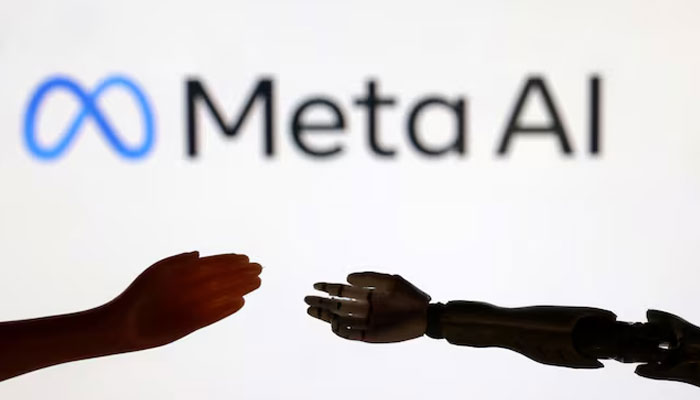AI Innovations and Talent Shifts in the Tech Industry
Author: John Doe

The tech industry has seen a remarkable surge in AI innovations that are transforming how businesses operate and interact with consumers. At the forefront of this change are leading companies such as Meta and NVIDIA, who are not only adopting AI technologies but also reshaping their workforce by attracting top talent in the field.
Recently, it was reported that Meta Platforms has hired four prominent researchers from OpenAI, further establishing its commitment to advancing AI capabilities. This move reflects a broader trend of large tech companies competing for expert knowledge to enhance their artificial intelligence frameworks, ultimately aiming to deliver superior products and services.

Meta AI logo as part of their initiative to enhance artificial intelligence.
The researchers, Shengjia Zhao, Jiahui Yu, Shuchao Bi, and Hongyu Ren, bring extensive expertise in AI research that will contribute to Meta’s ongoing projects in this fast-evolving domain. Their addition is part of Meta's strategic hiring to bolster its AI capabilities and better compete in the growing tech landscape.
Another notable advancement in AI is showcased by NVIDIA's upcoming DLSS or Deep Learning Super Sampling ‘Transformer Model’. This new model is set to reduce VRAM usage by 20%, facilitating smoother performance for mid-range GPUs. Such enhancements are crucial for gamers and developers aiming to leverage high-quality graphics without necessitating top-of-the-line hardware.
As AI developments continue to gain traction, the focus has also shifted towards ethical considerations and real-world implementations. An interesting experiment conducted by Anthropic has demonstrated some of the limitations of AI agents, particularly when tasked with managing a business. This reveals that while AI has substantial capabilities, it can still falter in complex scenarios that demand human-like decision-making.
Besides gaming, AI's influence is expanding into areas like healthcare, where innovative applications are emerging. Recent breakthroughs in sperm-detecting AI have showcased how technology can assist in addressing infertility issues, providing new hope for couples experiencing challenges in conceiving.

Illustration of a computer vision model.
In light of these advancements, companies like Runway are venturing into the gaming industry with generative AI platforms designed to create interactive experiences. Their new platform, Game Worlds, seeks to democratize game development by allowing users to generate text and graphics using AI, thus fostering creativity and reducing the barrier to entry for aspiring game developers.
However, the integration of AI within the gaming sector has sparked debate, especially regarding the use of AI to replicate human creativity and originality. Criticism has arisen over ethical concerns, particularly with the SAG-AFTRA union striking over the use of AI to leverage actors' likenesses without consent.
As we move forward into a future shaped significantly by AI technologies, it is essential for stakeholders across the tech industry to balance innovation with ethical considerations. As seen with companies like Altimetrik and SLK Software’s recent merger, the focus on AI-driven solutions is becoming increasingly prevalent across varied sectors, ensuring that technology serves to enhance and support human capabilities.
In conclusion, the intersection of AI technology and talent acquisition represents a dynamic and evolving landscape. As companies invest in AI research and talent, the implications extend beyond mere technological advancement; they encompass fundamental changes to labor dynamics, ethical standards, and creative processes across industries.